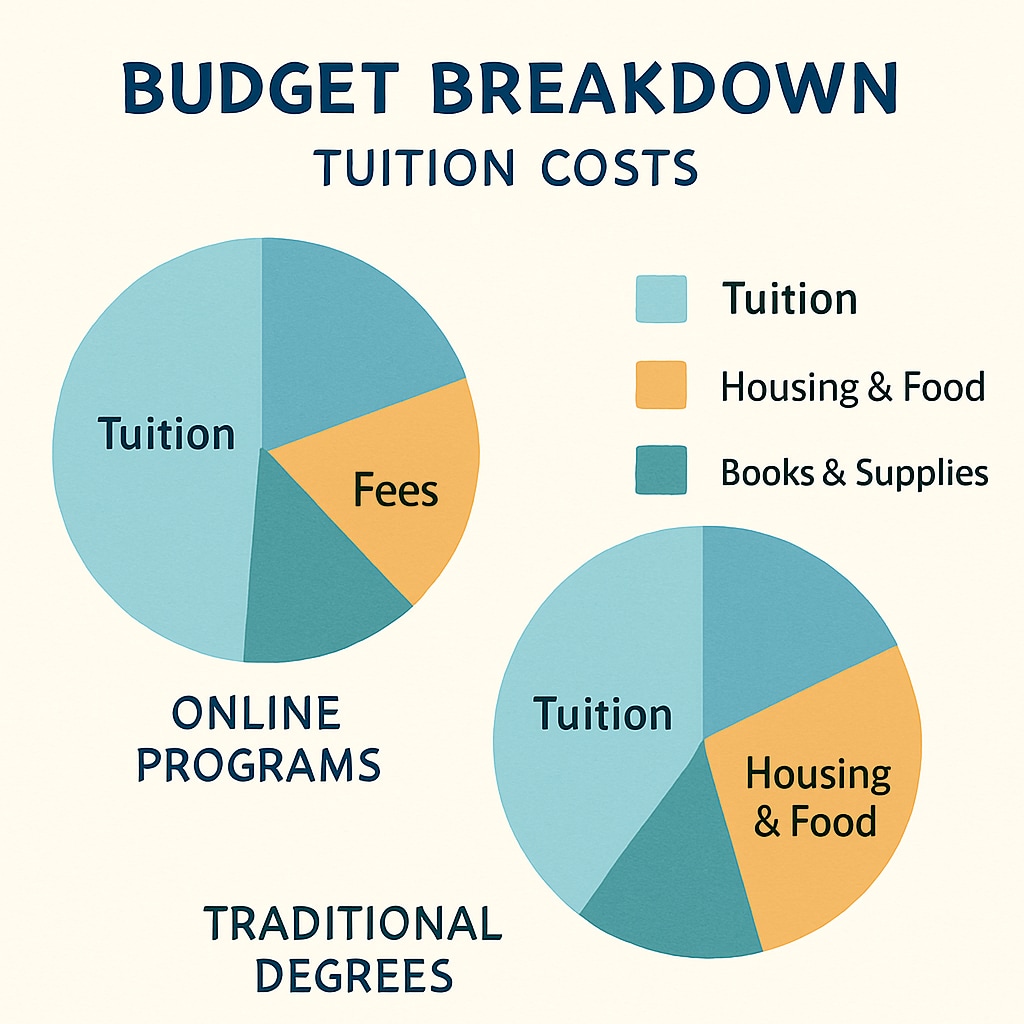In today’s fast-paced world, pursuing an online bachelor’s degree has become an attractive option for busy professionals looking to advance their careers. Finding affordable online education options that align with work schedules and financial considerations is essential. This article explores various strategies to identify low-cost, high-quality online bachelor’s degree programs, particularly in fields such as business and finance, enabling individuals to balance their education and professional lives successfully.
Why Choose an Online Bachelor’s Degree?
Online learning offers flexibility, making it ideal for professionals juggling work, family, and personal commitments. Unlike traditional programs, online degrees provide the opportunity to learn at your own pace, often at a lower cost. Additionally, the range of available programs has expanded, covering diverse fields such as business administration, finance, healthcare, and more.
For instance, fields like business and finance are particularly popular among working professionals. These degrees not only offer career advancement opportunities but also equip learners with critical skills for entrepreneurship and management roles. By opting for online programs, students can access high-quality education without the need to relocate or sacrifice their current employment.

How to Identify Affordable and Quality Programs
When searching for affordable online bachelor’s degree programs, it’s important to evaluate both cost and quality. Here are some tips to help you find the right program:
- Accreditation: Ensure the program is accredited by a recognized institution. Accreditation guarantees that the program meets industry standards and is respected by employers.
- Tuition Transparency: Look for schools that provide clear, upfront information about tuition fees, additional costs, and financial aid options.
- Scholarship Opportunities: Many universities offer scholarships or grants specifically for online learners, reducing the overall cost of education.
- Flexible Scheduling: Choose programs with asynchronous classes, allowing you to study on your own time, or hybrid models that combine online and occasional in-person sessions.
For example, universities like Arizona State University and Southern New Hampshire University offer affordable online bachelor’s degrees in business and finance. These programs are designed to accommodate working professionals, providing flexibility and robust academic support.

Balancing Work, Education, and Finances
Managing work, education, and finances can be challenging, but with the right strategies, it’s achievable. Here are some practical steps to consider:
- Create a Study Schedule: Plan your weekly study hours around your work schedule to maintain consistency.
- Leverage Employer Benefits: Check if your employer offers tuition reimbursement programs or professional development funding.
- Use Free Resources: Supplement your coursework with free online resources such as Khan Academy and public libraries.
- Minimize Debt: Avoid taking large student loans by exploring part-time programs, payment plans, or working while studying.
Online programs often provide additional support through career counseling, networking opportunities, and mentorship. By utilizing these resources, students can maximize the benefits of their education while maintaining their current lifestyle.
The Future of Online Education
The demand for online education, particularly in fields like business and finance, continues to grow. As technology advances, more universities are adopting innovative teaching methods, such as immersive virtual classrooms and interactive simulations. These advancements not only enhance learning outcomes but also make education accessible to a wider audience.
Moreover, the shift towards online learning aligns with the growing need for lifelong education. Professionals can continuously upskill and stay competitive in their industries without the constraints of traditional education systems.
In conclusion, pursuing an affordable online bachelor’s degree is a practical and effective way for busy professionals to enhance their careers. By carefully selecting a program that fits their needs and leveraging available resources, individuals can achieve their educational goals without compromising on quality or work-life balance.
Readability guidance: Short paragraphs and bulleted lists summarize key points effectively. The use of transition words (e.g., however, therefore, for example) ensures smooth flow. Passive voice is minimized to maintain clarity and engagement.


